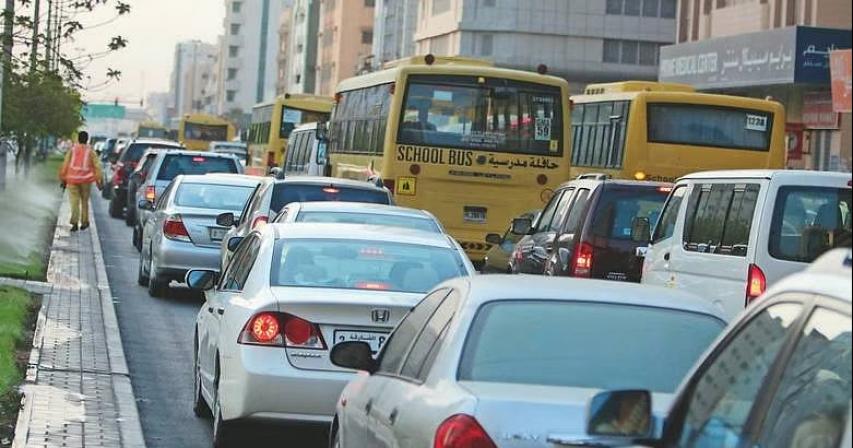Some Dubai schools launch carpooling initiatives to cut traffic, boost sustainability

A few organizations in Dubai are implementing carpooling initiatives as one of the solutions to combat the worsening traffic congestion around schools.
It is advisable that parents consider using shared transportation. While paid carpooling in the UAE is illegal, informal non-commercial carpools where parents take turns driving each other's children can still be arranged.
These initiatives help reduce traffic congestion and encourage a more environmentally friendly culture. The advantages are not limited to alleviating traffic; schools report lower levels of congestion and improved social relations among the parents, who are more connected and less stressed during the school rush hours.
As highlighted in the case of Dubai International Academy Emirates Hills by Hitesh Bhagat, the purpose of the initiative is to foster community amongst the parents who live close to each other so they can coordinate shared arrangements for driving. "If we all participate in the car pooling initiative the amount of traffic in the area can reduce significantly. This promotes a better environment around the school,” he said.
"Traffic congestion around Emirates Hills will decrease significantly, improving the efficiency and decreasing the stress involved in the daily school run. Carpooling is a sustainable practice that, in addition to reducing carbon emissions, fosters a sense of community among residents.”
"Parents can unite, share the adventure, and design an efficient and enjoyable travel experience. If we all embraced carpooling, we can save the environment while making life easier for all," Hitesh noted.
At Dubai International Academy Al Barsha, while there is no official policy, the school encourages families to share rides, especially after traffic starts to rise during the warmer months.
“During the summer, we ask teachers and families to try to carpool as part of the traffic reduction and sustainability effort. In the colder months, we promote cycling or walking where possible,” said Ian Thurston, Principal of Dubai International Academy Al Barsha.
On occasion, parents will contact schools to find out if there are other parents within their vicinity who may be willing to share rides. Although schools cannot disclose personal information without consent, they do help facilitate the contacts between interested families when possible.
As Thurston has pointed out, “We assist parents in carpooling by trying to help them relate or connect with other parents.” This is easier in the case of staff carpooling, since most staff members already have some form of car pooling. It is easy to coordinate their schedules and logistics due to existing relationships.
Thurston added, “We definitely appreciate the positive impact that will come from reducing the number of cars around the site in terms of traffic and time needed to clear the site. Even if one vehicle is removed from the roads, the impact will be enduring.”
Official carpool policies
Besides relieving congestion, Regent Gulf Indian High school is developing official policies on student carpooling to ensure that it is done in an orderly and safe manner.
Dr. S. Reshma, Principal-Director of Regent Gulf Indian High School Dubai: “We encourage parent-led carpooling of our students, promoting active and eco-friendly transportation while ensuring all RTA guidelines are followed. Although a formal policy is still being developed, we do have measures in place to protect our students."
"The carpooling is supported when organized by the parents of our enrolled students for safety and responsibility purposes. Staff members are also motivated to carpool with other staff members, especially those who live nearby and commute from other locations."
The reward for everyone
For already participating in the carpool, the benefits are obvious. “I don’t, but my wife does. Her business travels take her abroad quite frequently, which is why my son’s school is only a 10 minute drive from our house in Springs. We considered the school, but not really the school bus. Luckily, there’s another family in the neighbourhood whose kids go to the same school," said Arijit Nandi.
"He added: “The two moms alternate weekly, and this has been going on for three years. When my wife isn't driving, she uses that time in the gym or gets a headstart on work. All in all, we remain good friends over time.”
Palestinian expatriate Fadia Alam recounted an experience of her own. “Mornings are nuts as is, not to mention school buses tend to take longer. So, we arranged with a family friend. She drives one day and I the other. It’s fair, saves us on fuel and transport costs, and the children get some extra sleep, which helps. Honestly, it’s a win for everyone.”






Comments